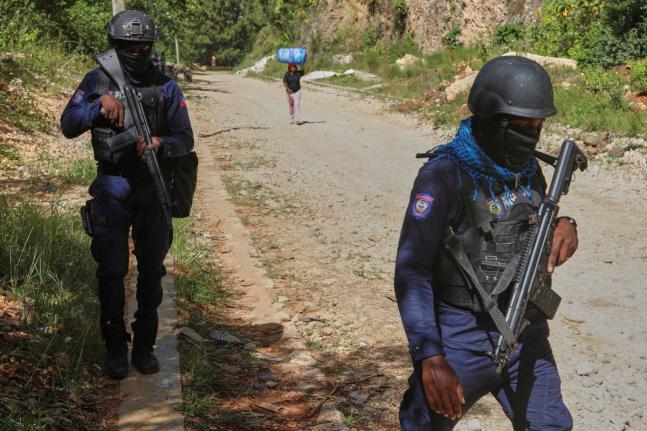Editorial | Hopeful for GSF, but …
Loading article...

The Gleaner is hopeful for the success of the Gang Suppression Force (GSF) the UN Security Council greenlit this week for Haiti, but looks forward to how the mission unfolds. The devil, as usual, is in the details.
Who, and how, the mission will be paid for over the long term, and which countries will contribute personnel to the force, are among the questions for which we seek answers.
Indeed, these are issues that dogged the Kenya-led Multinational Security Support (MSS) mission that has been deployed in Haiti for the past year, but whose mandate ended this week.
The MSS was to support Haiti’s national police to restore order and security in the country in the face of impunity by gangs, which last year were responsible for more than 5,000 deaths and the almost crippling of the Haitian State. The gangs control most of Port-au-Prince, Haiti’s capital, and have caused serious disruptions in other places.
There has as yet been no formal assessment of the performance of the MSS. But, on its face, it would not be unreasonable to conclude that it did not meet its objectives. The MSS did help to take back Haiti’s port from gangs to bring relative security to some critical areas. However, the gangs are still rampant and Haiti continues to falter under the weight of insecurity.
Part of the problem, some analysts say, is that while Kenya contributed nearly 800 police to the mission, only a handful of other countries, including Jamaica and Caribbean Community (CARICOM) partners, The Bahamas and Belize, sent personnel for a force whose size never topped 1,100. It is currently under 1,000.
The Security Council mandate for the GSF is a force of up to 5,500, inclusive of police and soldiers. Like the MSS, the GSF is not UN force but personnel from member states, acting with the imprimatur of the Security Council to conduct “either independently or as appropriate, together and in cooperation with the HNP and Haitian armed forces, intelligence-led targeted, counter-gang operations to neutralise, isolate, and deter gangs that continue to threaten the civilian population, abuse human rights and undermine Haitian institutions”.
The proposed size of the force, its supporters say, will provide it with numbers and strength to confront the gangs. However, the MSS remained underfunded and undermanned, a fate that, hopefully, won’t undermine the GSF.
Perhaps the fact that, apart from CARICOM, of which Haiti is a member, the GSF has the backing of the United States, which co-sponsored the resolution. The GSF also has backing of the Organization of American States (OAS). In other words, it is a matter of countries putting their money, as well as their troops, where their mouths are.
While the security question is a matter of priority for Haiti, almost as urgent is the effort to build, and maintain, institutions of governance and democracy.
CARICOM, through its Eminent Persons Group of three former prime ministers (Kenny Anthony, St Lucia; Bruce Golding, Jamaica; and Perry Christie, Bahamas) helped Haiti’s contending political forces to fashion a short-term power-sharing mechanism while the country plans for democratic elections.
CARICOM has to be prepared to be part of this process for a protracted period. It not is only the structures of the Haitian State that are badly stressed. The institutions of governance and democracy are also badly eroded and existentially weak.
The country’s political elite, with their long history of deviation from democratic norms, have to be continued cajoled and encouraged along the path of democracy rather than left to backslide.